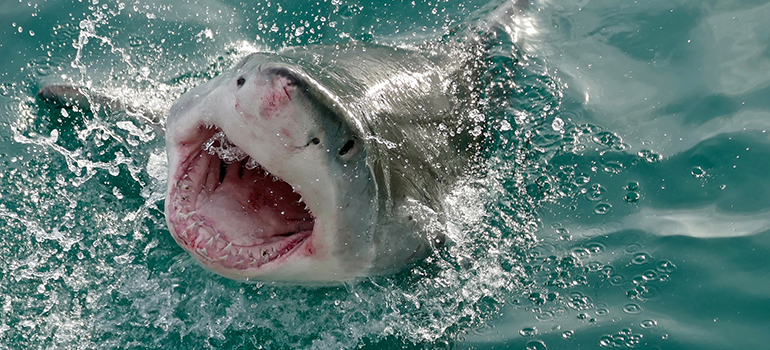
Credit: Bernard Dupont/Flickr
If ocean temperatures continue to climb, you’re going to need a bigger boat.
Great white sharks could one day be swimming in British Columbia waters, according to William Cheung, associate professor at the Institute for the Oceans and Fisheries at UBC who studies the impact of climate change on marine ecosystems.

William Cheung
To mark Discovery Channel’s hugely popular “Shark Week,” which kicked off Sunday, Cheung explains how warmer seas could bring new sharks never before seen in B.C. waters.
Is it possible we might one day see great white sharks in our local waters? Or are they already here?
With oceans warming, we do expect to see more tropical sharks in temperate waters. Based on my team’s computer simulation modelling, we found that climate change will cause an expansion of the range of great white shark to northern temperature areas, including the offshore waters of the northeast Pacific, which includes B.C.
If you look at the coast of California, it is expected that the types of species we see there could be in B.C. waters if we maintain at the status quo and do not mitigate carbon emissions. Species in California include the oceanic whitetip shark, and the great white shark. In the Atlantic, we would expect to see great whites along the coast of Newfoundland. Currently, they have been recorded, but sightings are rare.
What’s a realistic timeline for their arrival?
Such an expansion in range will be seen more and more frequently in the coming few decades. Ocean temperature in the Pacific fluctuates, with some years warmer than others. During the warmer years, sightings of warm-water sharks, like great whites, increase. As the oceans warm, we expect to see sightings of these sharks more and more often.
What shark species are found in B.C. waters already?
Fourteen shark species are listed by the Department of Fisheries and Oceans in B.C. waters, with the six most common species being salmon shark, blue shark, Pacific sleeper shark, brown cat shark, spiny dogfish and tope (soupfin) shark.
What species are we at most risk of losing due to rising ocean temperatures?
The numbers of many shark species are going to shrink in the available habitat for them, particularly the tropical sharks. Eventually, tropical waters will simply be too hot for the sharks to live in.
Tags: British Columbia, climate change, faculty, sharks, William Cheung